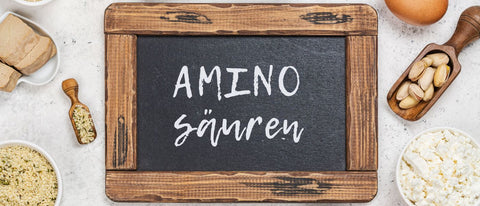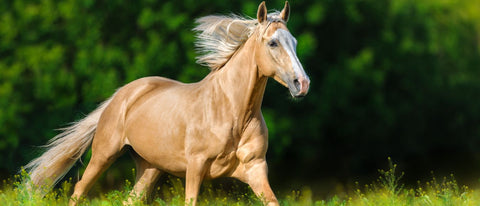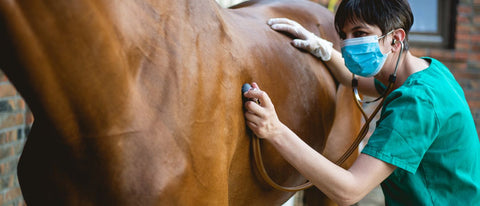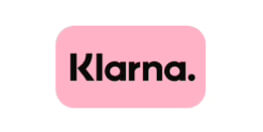
Florian ist aufgewachsen auf einem Bauernhof. Umgeben von Pferden, entdeckte er früh seine Faszination für diese majestätischen Tiere. Inspiriert von seiner reitbegeisterten Mutter, entwickelte er das Nahrungsergänzungmittel - Pferdegold. Seine tiefe Verbundenheit zur Natur und die leidenschaftliche Hingabe zu Pferden trieben ihn an, sein Unternehmen zu gründen.
When you think about your horse's well-being, many things probably come to mind: sufficient exercise, a healthy diet and, of course, lots of love and care.
But have you ever thought about the importance of amino acids for horses?
These small building blocks play a huge role in your horse's health and performance.
Whether mare, gelding or foal, amino acids are essential for every horse.
Find out here why amino acids should not be missing from your horse's diet.

Amino acids: The invisible heroes in your horse's body
Amino acids are the building blocks of proteins and perform many vital functions in the body.
They are comparable to small puzzle pieces that fit together to form the powerful structures, the proteins.
They form the solid foundation for numerous processes and are essential for the health and well-being of your horse.

Perfect for your horse: Pferdegold® supplementary feed!
These specially developed supplements support your horse's diet and provide it with natural nutrients. Made in Germany, grain-free and drug-free, with a 30-day money-back guarantee.
Try it now!The essential role of amino acids for your horse
+ What are amino acids good for?
Amino acids are not only the basic building blocks of proteins , but also real all-rounders in your horse's body.
They are found in muscles, organs and many other tissues and play a crucial role in functions such as transporting nutrients, fighting pathogens and repairing cells.
+ What do amino acids do?
They support muscle building, promote regeneration and are involved in numerous metabolic processes .
They help with hormone production and strengthen the immune system . Without a sufficient supply of amino acids, your horse would not be able to function optimally.
In order to stay healthy and productive, it is essential that your horse receives a balanced diet that contains all the necessary amino acids.

Which essential amino acids do horses need?
Amino acids are essential for horses. They are not only the building blocks of proteins, but also crucial for numerous functions in the horse's body , from supporting muscle development to strengthening the immune system. Some of these amino acids cannot be produced by the horse's body itself.
They must therefore be ingested through food. These amino acids are also called " essential amino acids " because of their crucial role in health.
For your horse's well-being and optimal performance, it is essential to include these amino acids in its diet.
You need to know these 4 amino acids!
-
Lysine
Lysine is an essential amino acid that plays a central role in muscle building.
It plays a key role in cell division and growth. Skin, hair, bones, and connective tissue depend on lysine for proper function. Lysine also supports calcium absorption, which is crucial for strong bones and teeth.
-
Methionine
Methionine is not only a source of sulfur for the horse's body, but also plays a crucial role in growth and a functioning metabolism.
It is particularly important for the synthesis of keratin, a building block for hair and hooves, and can thus contribute to strong hooves and a shiny coat. Methionine is also involved in muscle building, particularly in the formation of muscle proteins.
-
Threonine
Threonine is the second most important amino acid after lysine. It is essential for tendons, ligaments, and the liver.
Threonine also supports the synthesis of other amino acids that produce collagen, elastin and muscle tissue, thus contributing to supple and elastic muscle and connective tissue.
Threonine is also found in the mucous substances that protect the stomach and intestines.
-
Tryptophan
Tryptophan can be converted in the horse's metabolism into serotonin, a neurotransmitter often referred to as the "happiness hormone."
This amino acid is believed to promote happiness and relaxation in horses. Adequate intake of tryptophan could therefore help horses to be more balanced and calm in stressful situations.

Signs of deficiencies in horses
An amino acid deficiency in horses can manifest itself in a variety of symptoms.
The most common signs include:
-
Weak muscle development: Despite regular training, the horse does not show satisfactory muscle development.
-
Coat quality: The horse's coat appears dull and lacks shine.
-
Regeneration: After exertion, the horse needs an unusually long time to recover.
-
Immune system: The horse shows an increased susceptibility to disease.
-
Behavioral abnormalities: Symptoms such as nervousness or lack of motivation may occur.
-
Skin and hooves: Problems in these areas can also indicate a deficiency.
If you notice these signs in your horse, it is crucial to recognize them early and take action.
It is recommended to have the symptoms checked and consult a veterinarian to ensure the well-being and health of your horse .
Proper feeding with amino acids: How do horses utilize proteins?
Horses need a balanced diet to stay healthy and perform well . Proteins are crucial, as they serve as building blocks for many bodily functions.
But how exactly do horses utilize these proteins?
In the digestive tract, proteins are broken down into their individual amino acids. These are then transported via the bloodstream to the cells , where they are used for various functions.
It is therefore essential that the amino acid horse feed provides a balanced mix of essential amino acids.
A protein-rich feed for horses ensures that the horse receives all the necessary building blocks to strengthen its muscles, repair tissue and optimally support a variety of other vital functions .

Pferdegold® supplementary feed!
Pferdegold is a small family business from Bavaria with a big dream: to produce the best horse feed. We see ourselves as a family of equestrians who want to provide your horse with the ideal nutrition. 100% natural and perfectly tailored to your horse's needs.
Try it now!Conclusion
Amino acids are the heart of a balanced horse diet and contribute significantly to your horse's health and vitality.
They form the basis for effective muscle building, a radiant coat and an energetic horse life.
Always remember: A well-fed horse is a happy horse. Let's work together to ensure your four-legged friend always feels completely at home.
FAQ
How do essential and non-essential amino acids differ?
Essential amino acids are those that the horse's body cannot produce itself and must therefore be obtained through food. Non-essential amino acids, on the other hand, can be produced by the body itself, even if they are present in the diet.
Both types are important for the horse's health, but the supply of essential amino acids through the diet is essential.
How do seasons and grazing conditions influence the amino acid content of feed?
The quality and nutrient content of pasture grass can vary depending on the season and soil conditions. In some seasons or under poor grazing conditions, the amino acid content of the grass may be reduced.
It is therefore important to regularly check the horse's diet and, if necessary, adjust it with suitable supplementary feed.
What role do amino acids play in the rehabilitation of injured horses?
Amino acids play a key role in tissue repair and regeneration. In injured horses, they can help accelerate the healing process and rebuild muscle. Adequate intake of essential amino acids can therefore support the rehabilitation process and help the horse return to full performance more quickly.
If you want to learn more about the horse world, you can find more articles on our blog:
IMPORTANT:
Pferdegold is not a substitute for veterinary diagnosis or treatment . The information contained in this article is for general informational purposes only and is intended to help improve your horse's well-being.
Pferdegold products do not treat or cure diseases , but rather support your horse in correcting nutritional deficiencies through targeted nutrient intake. However, they are not a substitute for professional advice from a veterinarian or specialist.
If your horse has any health problems , we strongly recommend consulting a veterinarian . Pferdegold assumes no liability for decisions made based on the information provided here.

















